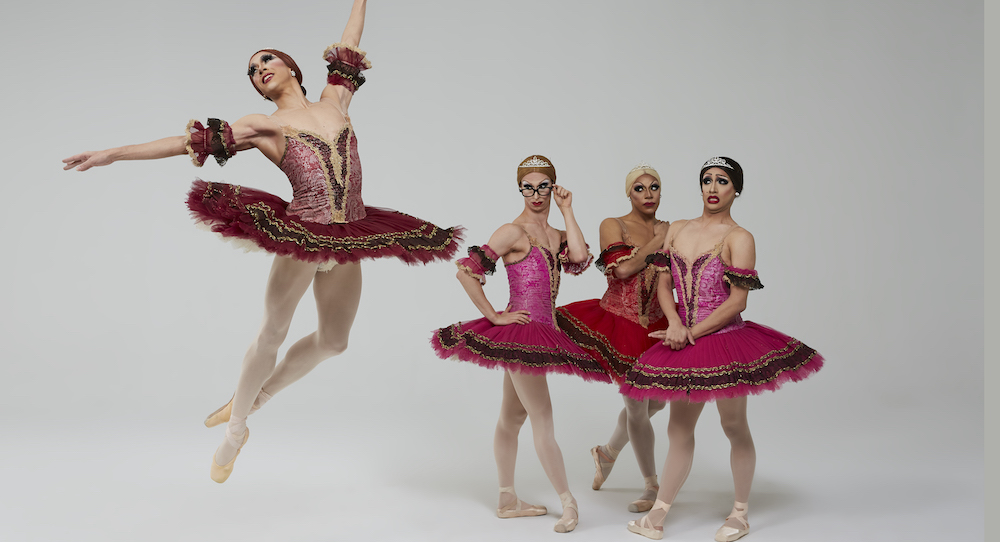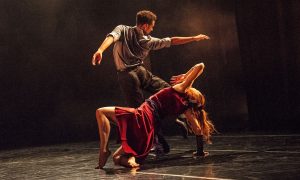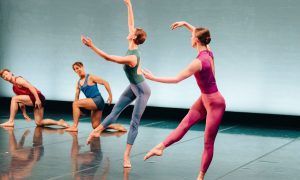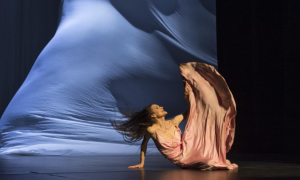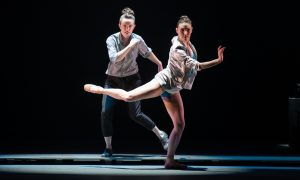The lights go down, the overture begins. Lively dancers en pointe swirl gracefully around the stage. Wait. Bicep muscles and chest hair? Slapstick jokes amidst triple fouettés? If you are roaring with laughter, you are most definitely at a performance of the Les Ballets Trockadero de Monte Carlo. At 50 years, the company continues its grand tradition of comic ballet with a gender-bending twist.
Les Ballets Trockadero de Monte Carlo was founded in 1974, in the wake of the Stonewall uprising. The first performances were held in a loft space on a makeshift stage in downtown New York City. Since then, the company has performed all over the globe, in over 43 countries and 667 cities. The Trocks also connect with audiences off stage through engagement programs that focus on elements of their performances.
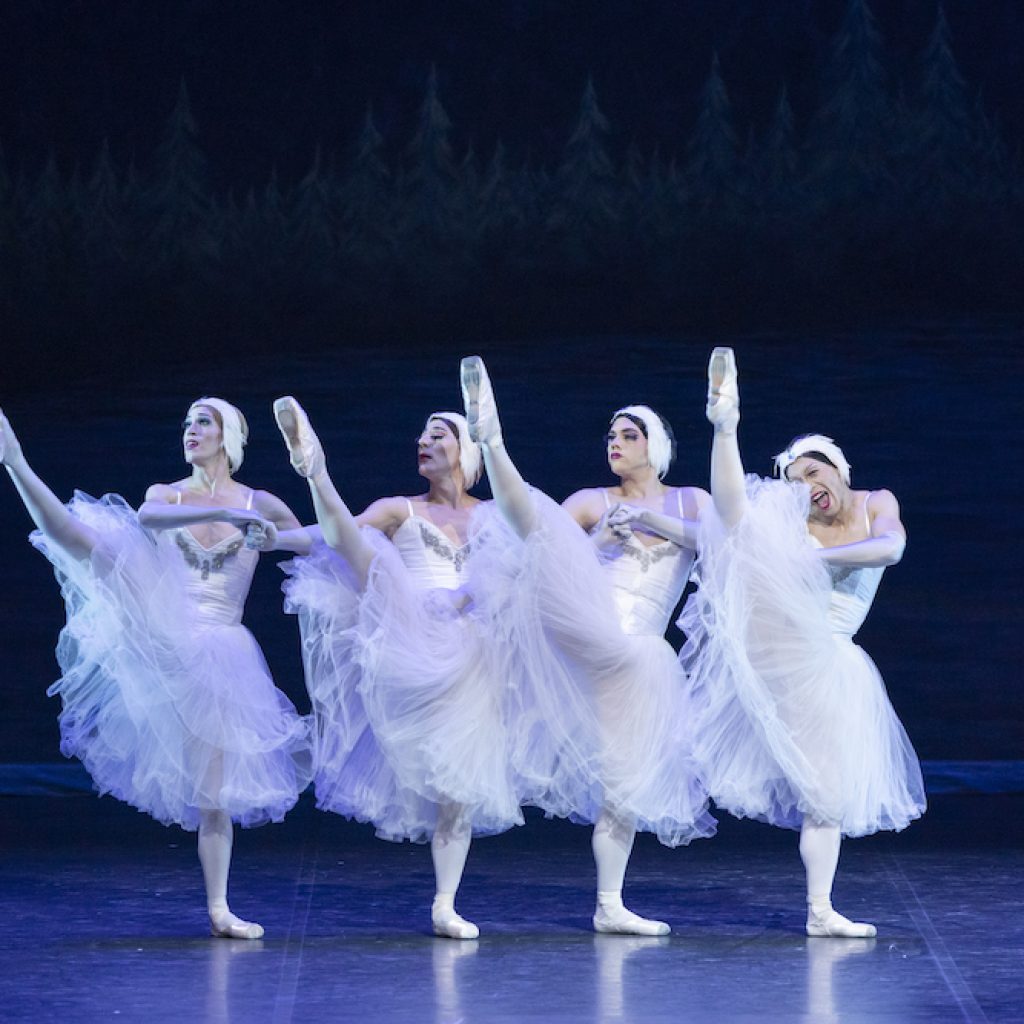
Tory Dobrin has been the artistic director for 30 years and first joined the company as a dancer in 1980. He has a long-term perspective on the changes in society and how they affect the company. “Currently, the dancer’s technical level is higher. But (back then) it felt more subversive because there was a lot of pushback from society. Drag was not so widely accepted as it is now.” In the late ’80s, during the AIDS epidemic, funding was drying up for the arts. In the very early ’90s, the company almost shut down.
Dobrin speaks frankly about overcoming obstacles. “The artistic staff left, and we had to start over. Things changed in the mid-’90s after performances in the UK. The reviews from some of the big critics in the papers were good, and those were sent to venues in the USA. That resulted in bookings.”
In 2000, the Trocks filmed two programs at Maison de la Danse. The film went all over the world and in the USA on Bravo, reaching new audiences. In 2007, the troupe won the UK Critics’ Circle National Dance Award for Best Classical Company and has been featured in numerous documentaries and television shows all over the world.
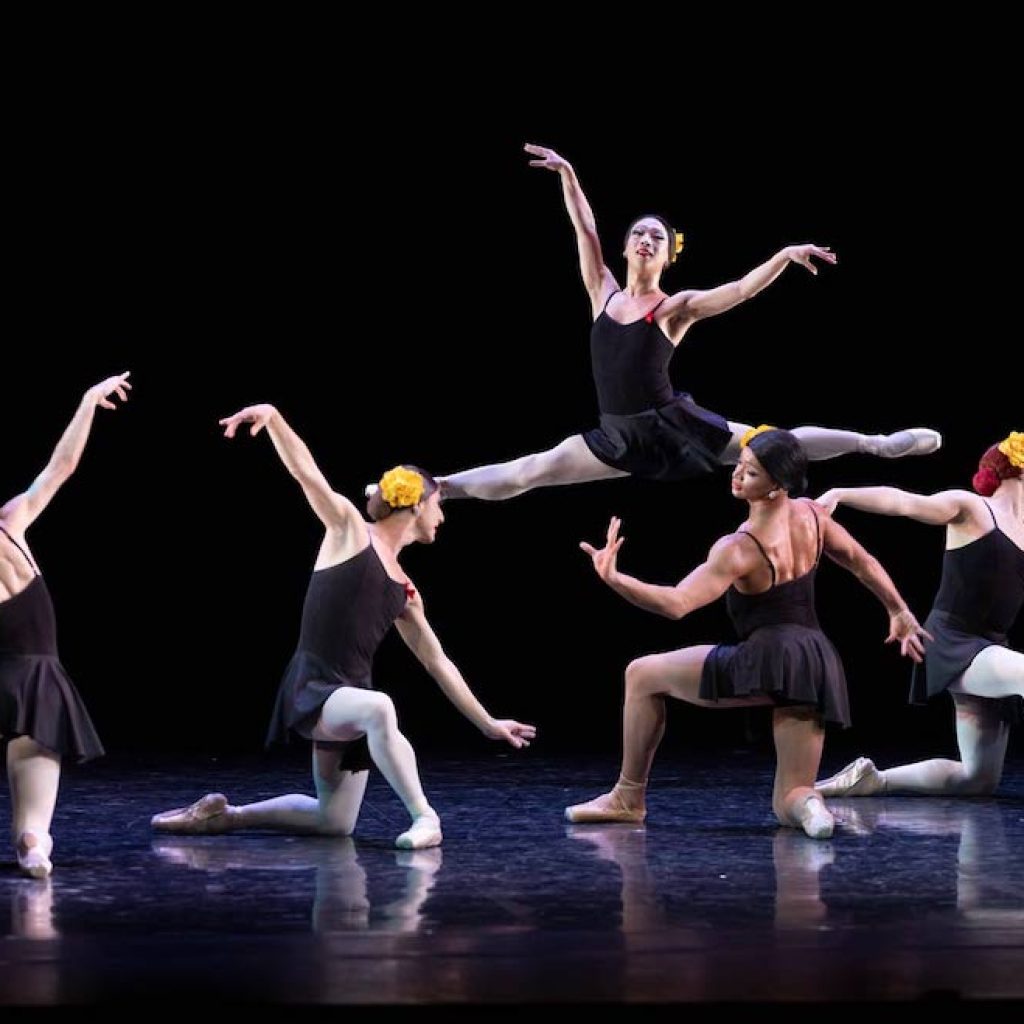
During Dobrin’s tenure, some of the biggest changes have been in the audiences. He observed that in the ’80s, there were mostly dance audiences — liberal and culturally aware. “After the AIDS crisis, we got really tired of being so cautious about what we were doing. So many people were struggling with their health. We decided in the 1990s to just do our own thing. We brought a gay sensibility to the places we toured and did educational things for the gay and lesbian communities.” The company gained respect and stature, and now there are more adolescents and teenagers attending. Dobrin feels that it is positive and admires the supportive parents for bringing their children to the shows.
Another change is that more male dancers know pointe technique. In Dobrin’s generation, there were only two teachers who let men en pointe in their classes. Now all of the teachers in NYC allow men to dance en pointe and even offer coaching. “Gay men are allowed to be out, and drag is more accepted,” he muses. He also mentions how the longer sizes required by the dancers were only for special order. Now many dance retail companies are offering larger-sized pointe shoes as regular stock items.
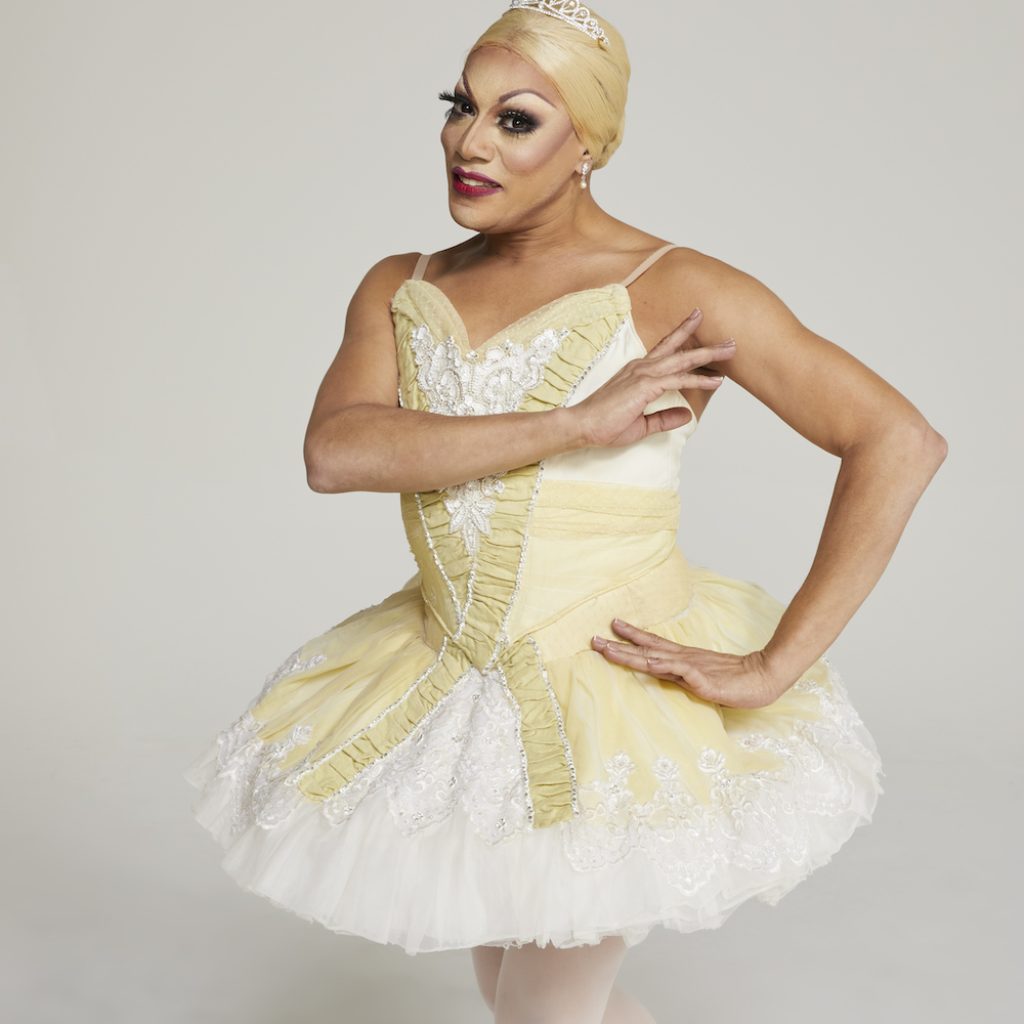
Currently, there are four people on the administrative staff who help run the company and 16 dancers. All the dancers perform all the roles. Dobrin points out that every role has multiple casts to ensure coverage in case of injuries, which means everybody has to learn everything. One standout dancer, Robert Carter, is celebrating his 29th year with the company. He performs ballerina roles as Olga Supphozova and male roles as Yuri Smirnov. He has danced leading roles in Swan Lake, Paquita, Don Quixote and many others. In particular, his Odette is technically adept, sensitive and hilarious all at the same time. Preparing for a performance, his makeup can take an hour-and-a-half, but if time is a factor, he can be stage-ready in 40 minutes.
Dobrin advises any hopefuls who want to audition for the company that “all along the way, people will give you criticism and bad energy. Don’t let anyone affect your enthusiasm.” He looks for good dancers with a sense of humor. “You need to be a friendly person with no diva personality. We need team players who show up on time and are respectful to their fellow company members.”
What’s in store for the future? Dobrin says, “We have been lucky to perform in some of the great theaters and opera houses. At the Kennedy Center, we sold out and had a full orchestra. More orchestras, new ballets, new ideas. We have a grant for creative time with up-and-coming choreographers. We want to keep expanding the audiences.”
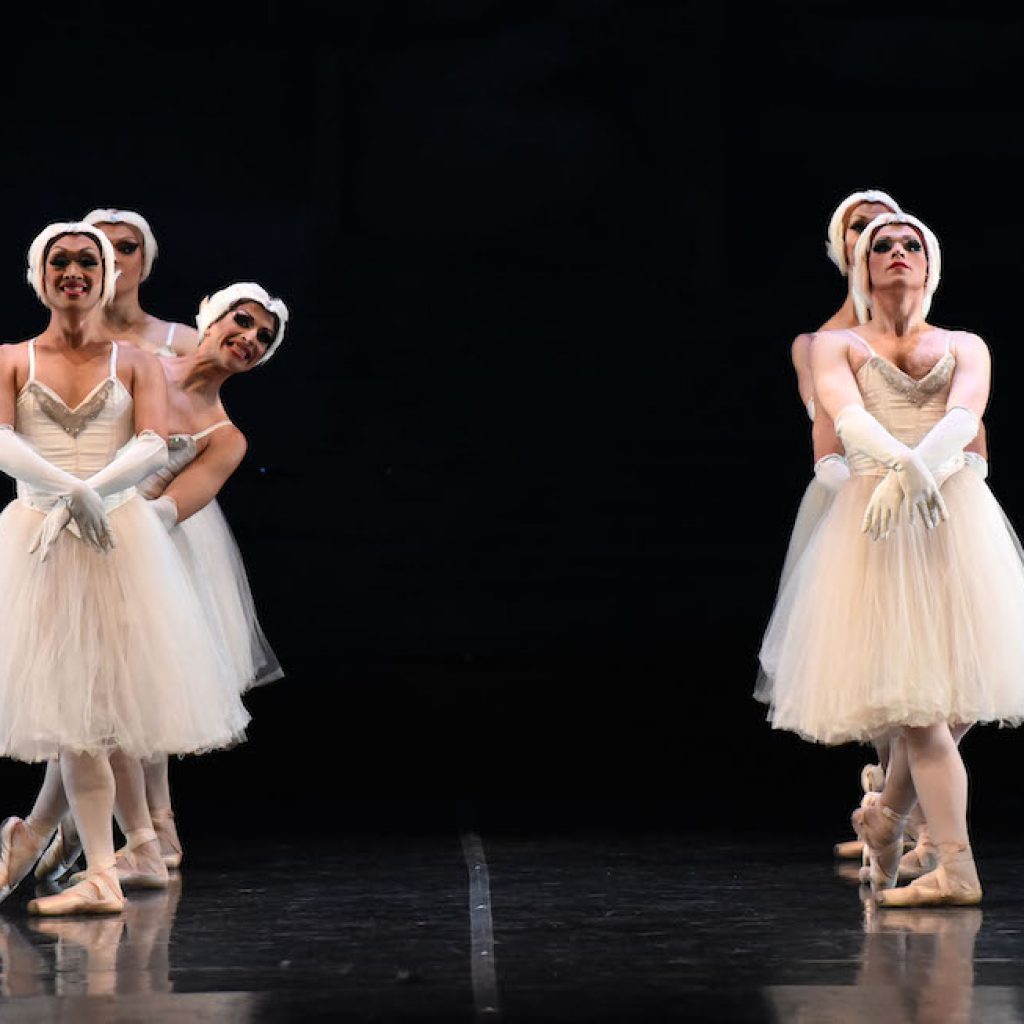
Les Ballets Trockadero de Monte Carlo is performing at the Joyce in NYC in December, and all over Europe, China and Japan in 2025. The company will revisit the UK in the spring of 2026.
Dobrin adds, “The Trockaderos are about having fun. Comedy is a way of living your true, authentic self. Comedy deserves respect. We always have a push and pull. Too many jokes? Not enough jokes? The audience is coming to laugh. I hope they leave impressed by how good the dancing is. We have great dancers, and it is a fun evening.”
Golden words for a golden anniversary. Here’s to another 50 years, and keep those laughs coming.
Find out when and where the company is performing by visiting trockadero.org.
By Mary Carpenter of Dance Informa.


